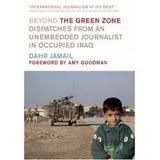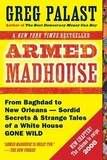-
You are currently browsing the archives for the Afghanistan category.
-
 ___________________________________
___________________________________
 ___________________________________
___________________________________
 This work is licensed under a Creative Commons Licence.
This work is licensed under a Creative Commons Licence.
Twitter Updates
Tweets by https%3Atwitter.comAnnamarieBohusVisit my page at: Peace and Collaborative Development Networking
-
Recent Posts
Archives
- March 2018
- January 2018
- April 2016
- January 2016
- February 2015
- November 2014
- October 2014
- September 2014
- August 2014
- February 2014
- January 2013
- July 2009
- March 2009
- February 2009
- January 2009
- December 2008
- November 2008
- October 2008
- September 2008
- August 2008
- July 2008
- June 2008
- May 2008
- April 2008
- March 2008
- February 2008
- January 2008
- December 2007
- November 2007
- October 2007
- September 2007
- August 2007
- July 2007
- June 2007
- May 2007
- April 2007
- March 2007
- February 2007
- January 2007
Blog Stats
- 146,716 hits
Top Posts
- Facing uncertain future, fossil fuel workers want retraining in renewables
- PLEASE SHARE CUT TIM HORTONS Till Company Stops Fr…
- Why Don't We Have PR Already?
- Meditation
- Meditation
- Water Wars
- This year I will wear a poppy for the last time ~ an essay by Harry Leslie Smith
- https://twitter.com/AnnamarieBohus/status/53117347…
- https://twitter.com/profwolff/status/5315254160752…
- Why we must defend Canada
Subscribe Me!
Recent Comments
verbena19 on … internet advertising… on Meditation Listeria epidemic sc… on Listeriosis toll grows, number… Council of Canadians… on Council of Canadians: Action… gwmarkle on Why we must defend Canada May 2024 M T W T F S S 1 2 3 4 5 6 7 8 9 10 11 12 13 14 15 16 17 18 19 20 21 22 23 24 25 26 27 28 29 30 31 MISSION UNACCOMPLISHED by Tom Engelhardt
1356
- Anyone But Harper **
- Barriere Lake Solidarity* (English site)
- BilderbergBook.com
- Bluejay’s blog
- Campagne David Orchard Campaign ***
- Canadian Centre for Policy Alternatives (CCPA)
- Ceasefire Insider Blog
- CENSORED NEWS
- COA News – Independent News Portal
- Cold Water Flat (new blog on WP)*
- Crow’s Feet
- Dangerous Creation
- DanielEstulin.com
- Department of Culture **
- Elizabeth May’s blog
- Empire Burlesque – Chris Floyd Online
- Global Network Against Weapons & Nuclear Power in Space
- Hal Turner Show
- History News Network
- Joe Bageant: Deer Hunting with Jesus
- Lady Broadoak Visionary Planetary Healing Tutorial
- Mike Whitney’s blog (The Smirking Chimp)
- My Intellectual Odyssey ***
- Native American Times
- NDP Left
- NUCLEAR FREE ZONE
- Organizing Notes
- Pacific Free Press – Hard Truths for Hard Times
- Progressives for Dion: Alerts
- Progressives for Stéphane Dion
- Protest Barrick.net
- Realizing Ordinary
- Ron Paul’s Campaign for Liberty
- Solidarité Lac Barrière** (French site)
- Steve Anderson’s blog
- Stevie Cameron
- STOP THE RADIATION!
- The Boundary Bay Morning Steamer ***
- The Harper Index
- The Scott Ross***
- The Shock Doctrine: Naomi Klein’s website
- The Smirking Chimp
- The Spirit Wrestlers
- The Stop Stephen Harper Blog ***
- The Turner Report
- ThisCanadian
- TPM Cafe/Talking Points Memo
- Village of Ordinary
- Village of Ordinary – Journal of an ordinary life in a peaceful land
- Vote for Environment **
- Wired Blog Network
- Wired Blog Network: Threat Level **
Armed Madhouse
Awards
Beyond the Green Zone: Dispatches from an Unembedded Jo
Blogroll - Media - Other Interesting Sites


- A POSITIVE FUTURE
- A Step Apart ***


- ACLU
- Al Jazeera (English)
- Alter Net

- Amnesty International

- Amnesty International USA (AIUSA)
- Antiwar.com***
- AP Breaking News
- Asia Peace Center – Aspectasia.org
- Audacious Ontology
- AVAAZ.org
- Baghdad Burning
- BBC







- Blogmonkey**


- BREITBART.COM
- BuzzFlash
- CAAB.org (UK)
- CAIA


- Canadian Cynic
- Canadian Department of Peace
- Canadian Dimension
- Canadian Peace Alliance
- Canadian Pugwash
- Canadian Voice of Women for Peace
- Canuck Attitude



- Ceasefire.ca
- chomsky.info: The Noam Chomsky Website
- Chris Floyd – Empire Burlesque

- City on a Hill Press**
![Campaign for Innocent Victims In Conflict[CIVIC] CIVIC](http://i160.photobucket.com/albums/t193/Annamarie_033/CIVIClogo.gif)

- Coalition of Women for Peace **


- Cold Water Flat
- Common Dreams News Center
- Common Ground

- Conscience Canada
- ConsortiumNews.com

- CorpWatch

- counterpunch

- Crooks and Liars
- Crow’s Feet

- Dahr Jamail’s MidEast Dispatches
- Dahr Jamail’s weblog***
- Daily Kos
![British daily newspaper Daily Mail [UK]](http://i160.photobucket.com/albums/t193/Annamarie_033/mHead2.gif)

- Defense Committee for Malalai Joya***

- Democrats.com

- DeSmogBlog.com
- Disarmament Insight

- Disarming Conflict





- Feminist Peace Network *


- FLYBYNEWS
- Foreign Policy In Focus (FPIF)
- Fred Williams’ Web Site *

- Friends of Grassy Narrows
- Further Ramblings of a N. Irish Magyar
- Garth Turner, MP
- Gather the Women **

- Global National News.ca
- Global Research.ca


- Globe and Mail

- Grandmothers for Peace International **
- Green Assassin Brigade

- Greg Palast.com

- Haaretz Daily Newspaper Israel


- HALF MUPPET, HALF MUCUS *

- HarperIndex.ca


- hazel8500
- HCSW
- HEATHER WOKUSCH
- Heather Wokusch – MySpace**
- Heather Wokusch on YouTube *
- History News Network
- Homes Not Bombs
- Honor Six Nations






- IMEMC NEWS

- IN THESE TIMES



- Indigenous Peoples
- Information Clearing House
- Infowars.com **

- INTEGRATE THIS! SPP


- International Alert

- Internationally Known **
- IPPNW

- IRC – Americas Program
- IRC – Right Web
- ISARC
- Israel Blog Directory (Blog Flux)
- JimBobbySez ***
- Juan Cole: Informed Comment
- KAIROS


- LewRockwell.com

- Liblogs.ca
- Macleans.ca
- MADRE
- Make Affluence History
- MatthewGood.org
- MediaGuardian.co.uk
- MichaelMoore.com***
- MIDDLE POWERS INITIATIVE
- Mike’s Blawg
- Ministry of Love



- MNN: Mohawk Nation News

- Mother Jones
- Musicalchef***
- MY BLAHG

- Native American Times
- Native Sovereignty – Letter Writing



- News Dissector Blog

- nitroglycol *
- Nitroglycol’s mad, mad, mad, mad world


- No One Is Illegal MONTRÉAL
- Nonviolent Peaceforce

- OCAP
- oldephartteintraining***



- Organizing Notes **
- Organizing Notes*
- p m carpenter’s commentary***

- Palestine Friend*
- Palestine vs Israel
- Palestinian Assocation of Critical Care Services
- Para Justicia Libertad!

- Peace and Collaborative Development Networking


- Peace Takes Courage ***
- Peace Women **

- peacepalestine

- Peter Julian’s Website: Take Action – Help Stop Deep Integration!!

- Polaris Institute


- PRISON PLANET.COM

- Progressive Democrats of America (PDA) blog **
- Pugwash Conferences (Canadian)
- Queendom of Hawaii ****
- Queendom of Hawaii: CafePress.com
- rabble.ca

- RAPS – Master Calendar
- Rational Reasons **
- Realizing Ordinary



- Reuters AlertNet

- Rolling Back the Tide of Extremism, One Post at a Time
- Rootless Cosmopolitan **
- Rose Covered Glasses


- SCAW
- Schenandoah Fund ***
- School of the Americas Watch (SOAW.org)
- Scott’s DiaTribes
- Sierra Club of Canada
- Sketchy Thoughts
- Sounlight Foundation: Insanely Useful Websites (US)

- STAND UP Against Poverty

- Stevie Cameron’s blog




- Straight Goods
- Students Against Climate Change (SACC) ***
- sudanreeves.org***

- Taiga News – The First Perspective
- TAKE ACTION ~ Help Stop Deep Integration ~ Support NDP Motion and Sign Petition!!
- Tart Cider
- Telegraph co. UK
- Texas A & M University *

- The Angry Arab News Service
- The August Review

- The Budapest Sun Online

- The Conscious Earth

- The Cylinder
- The Daily Star – Lebanon
- The Daily Star Egypt
- The Democrat’s Diary
- The Dominion
- The Fourth World is Right Here*

- The Hamilton Spectator
- The Harper Index
- The Huffington Post

- The Jerusalem Post
- The Nation Institute
- The Nation Magazine

- The New York Observer’s Mondo Weiss

- The Peace Alliance ***

- The Progressive
- The Quakers’ Colonel ***
- The Real News****
- THE SEED LIFTING UP
- The Sleveen Institute ***
- The Smirking Chimp

- The Stop Stephen Harper Blog
- The story of a bike and a stubborn cyclist
- The Turner Report

- The Vanity Press
- The Village Voice
- The War in Context

- The Will to Truth



- TomPaine.com[mon sense]


- TOWARD FREEDOM

- truthout.org
- Ubuntu Linux Journey*
- UNIFEM – A Portal on Women, Peace & Security



- Unminds Must Fear**
- UnOriginal Gangster.com

- Valenzuela’s Veritas

- verbena-19 old Blogger site & archives

- Video Vox ***
- Village of Ordinary
- Village of Ordinary – Journal of an ordinary life in a peaceful land

- Voices In The Wilderness (wise prince)



- Walter Reed **
- While the Earth Burns

- Wild Wilderness Blog
- WildDogRoad***
- Woman At Mile 0
- Women’s International League for Peace and Freedom **

- World Federalist Movement – Canada


- Writings of J. Todd Ring **
- Wu Wei

- YayaCanada.com
- ZNET
Bread and Roses
Conscience Canada
Conservation International - Stop the Clock
Free Kareem.org
HAWAII'S STORY
Human Rights Blogs
Independent Media: independent journalism/music/books/f
INTEGRATE THIS!
International Rally Against War in Iraq
Internet/
Iraq Veterans Memorial
My Non-Partisan Credentials
PEACE MOM: A Mother's Journey through Heartache to Acti
Site Meter
Space for Peace
SUPPORT OUR TROOPS - Bring 'em Home!
TAKE ACTION ~ Help Stop Deep Integration ~ Support NDP
Take the AlertNet Quiz
The New Peace Lobby
Thinking Blogger Award
-




Support The Pesticide Bylaw
Visit: www.gardensoffdrugs.com
STOLEN CONTINENTS: 500 Years of Conquest and Resistance in the Americas

 Spiritualist Resources.com: Lots of Spiritualist Directories, Meditations, Articles, Resources, etc.
Spiritualist Resources.com: Lots of Spiritualist Directories, Meditations, Articles, Resources, etc.

 Live Bookmarks
Live Bookmarks BBC NEWS
BBC NEWS- Untreated sewage illegally pumped into Windermere
- Huge manhunt after French prison officers killed in ambush
- Co-op Live arena finally opens doors after delays
- First portrait of King since coronation unveiled
- Trump's lawyer attacks Cohen in hush-money trial
- Israel and Egypt row over reopening Rafah border crossing
- Three in court over alleged plot to attack Jewish community
- Diana's ex-chauffeur settles slander claim against BBC
- Super Gran star Gudrun Ure dies aged 98
- Protests as Georgia approves controversial 'foreign agent' law
NO HUMAN BEING IS ILLEGAL
Top Clicks
- None
Flickr Photos
-
Activism:civil disobedience/rallies/letters/petitions Afghanistan Amnesty International Bush's GWOT Canada/Canadians Canada: Ontario Canadian Government/Stephen Harper/Conservative Party Council of Canadians/Canadian Sovereignty Dahr Jamail/MidEast Dispatches Environmental issues/global warming/climate Films/documenaries/ George Bush/Bush Administration/American Empire Human Rights Indigenous People/First Nations/Aboriginals Iran Iraq/Iraq War Middle East Neocons/Neoliberals News/Commentary/Opinion News/reports News and Commentary North American Union: SPP/Integration/TILMA Nuclear Disarmament/NPT/APEC Poverty/Make Poverty History/ISARC/OCAP Tom Engelhardt/TomDispatch/Tomgrams Toronto/GTA/S.Ontario U.S. Politics/Foreign Policy Uncategorized USA US Military/Pentagon
- Action Alerts activism Activism: letters/petitions Add new tag Afghanistan Americans Barack Obama Bush's GWOT Canada's election 2008 Canada's First Nations Canada's sovereignty Canada/Canadians Canadian Government/Stephen Harper/Conservative Party Canadian sovereignty Canadian uranium mining climate change corporate fraud Environmental hazards/contaminants/pollution Environmental issues/global warming/climate change events financial markets food/water contamination George Bush/Bush Administration George Bush/Bush Administration/American Empire Henry Paulson/US Treasury Secretary Hiroshima & Nagasaki Commemorations Human Rights Human Rights/human rights abuses Indigenous People/First Nations/Aboriginals Information Clearing House (ICH) Internet/YouTube Iraq/Iraq War Israel/Palestine John McCain mainstream media McGuinty Government/Ont. Liberals Middle East NAFTA neocons News & Commentary North American Union: SPP/Integration/TILMA oil/gas/gasoline/natural gas/ oil prices Omar Khadr Peace poverty propaganda Robert Lovelace Six Nations social justice SPP/NAU Stephen Harper Stéphane Dion Tom Engelhardt/TomDispatch/Tomgrams Toronto Toronto/GTA/S.Ontario toxic environment USA USA's financial crisis USA's wars US economic crisis/recession/depression US economy US financial crisis US Military US Military/Pentagon US Pentagon US politics US war resisters US wars for oil videos Wall Street and Washington Wall Street banksters war water writers/poets/artists/performers
a
Pages
Twitter Updates
Tweets by AnnamarieBohus




























Tomgram: The Empire v. The Graveyard
February 5, 2009February 5, 2009
Tomgram: The Empire v. The Graveyard
Whistling Past the Afghan Graveyard
Where Empires Go to Die
By Tom Engelhardt
It is now a commonplace — as a lead article in the New York Times’s Week in Review pointed out recently — that Afghanistan is “the graveyard of empires.” Given Barack Obama’s call for a greater focus on the Afghan War (“we took our eye off the ball when we invaded Iraq…”), and given indications that a “surge” of U.S. troops is about to get underway there, Afghanistan’s dangers have been much in the news lately. Some of the writing on this subject, including recent essays by Juan Cole at Salon.com, Robert Dreyfuss at the Nation, and John Robertson at the War in Context website, has been incisive on just how the new administration’s policy initiatives might transform Afghanistan and the increasingly unhinged Pakistani tribal borderlands into “Obama’s War.”
In other words, “the graveyard” has been getting its due. Far less attention has been paid to the “empire” part of the equation. And there’s a good reason for that — at least in Washington. Despite escalating worries about the deteriorating situation, no one in our nation’s capital is ready to believe that Afghanistan could actually be the “graveyard” for the American role as the dominant hegemon on this planet.
In truth, to give “empire” its due you would have to start with a reassessment of how the Cold War ended. In 1989, which now seems centuries ago, the Berlin Wall came down; in 1991, to the amazement of the U.S. intelligence community, influential pundits, inside-the-Beltway think-tankers, and Washington’s politicians, the Soviet Union, that “evil empire,” that colossus of repression, that mortal enemy through nearly half a century of threatened nuclear MADness — as in “mutually assured destruction” — simply evaporated, almost without violence. (Soviet troops, camped out in the relatively cushy outposts of Eastern Europe, especially the former East Germany, were in no more hurry to come home to the economic misery of a collapsed empire than U.S. troops stationed in Okinawa, Japan, are likely to be in the future.)
In Washington where, in 1991, everything was visibly still standing, a stunned silence and a certain unwillingness to believe that the enemy of almost half a century was no more would quickly be overtaken by a sense of triumphalism. A multigenerational struggle had ended with only one of its super-participants still on its feet.
The conclusion seemed too obvious to belabor. Right before our eyes, the USSR had miraculously disappeared into the dustbin of history with only a desperate, impoverished Russia, shorn of its “near abroad,” to replace it; ergo, we were the victors; we were, as everyone began to say with relish, the planet’s “sole superpower.” Huzzah!
Click here to read more of this dispatch.
Recent Posts
3 days ago…
Tomgram: Chalmers Johnson, Economic Death Spiral at the Pentagon
5 days ago…
Tomgram: Airport to Nowhere, Waltz with Bashir, Pt. 2
1 week ago…
Tomgram: Nick Turse, Desperate Times and Desperate Measures
1 week ago…
Tomgram: Sandy Tolan, Five Questions for George Mitchell
Recent Highlights
4 weeks ago…
Tomgram: Body Count Nation
5 weeks ago…
Tomgram: Rebecca Solnit, Getting Away with Murder after Katrina